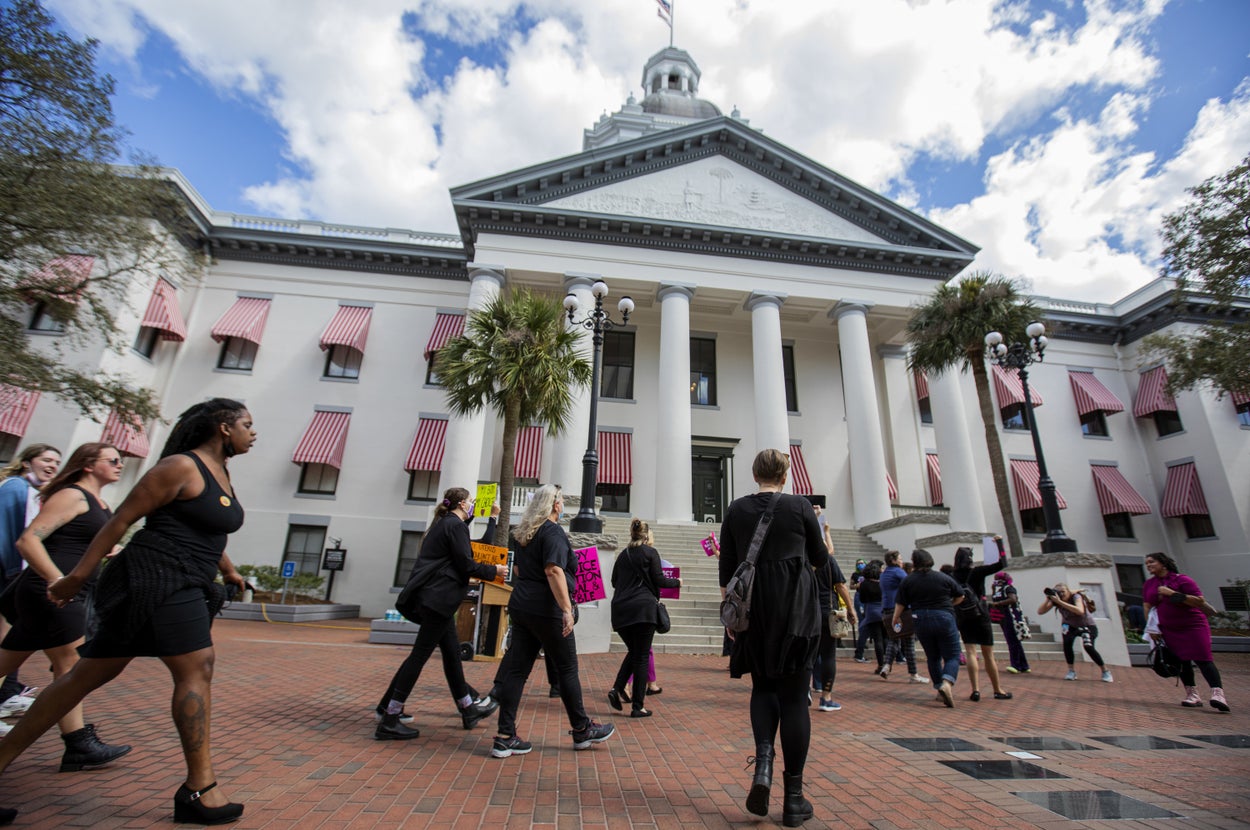In recent weeks, the controversy surrounding mifepristone, one of the key drugs used in medication abortions commonly known as the “abortion pill,” has escalated, drawing significant legal attention. A pivotal moment occurred when a federal appeals court ruled that, despite ongoing legal challenges, mifepristone is to remain available. However, this decision comes with notably tighter restrictions than previously seen, setting the stage for a continued legal and societal tug-of-war over its accessibility.
Further heightening tensions, the legislative landscape in Florida has seen dramatic shifts. The Florida Senate recently passed a proposed six-week abortion ban—a move that spurred immediate protests. Among the voices raised in dissent was Florida Senate Minority Leader Lauren Book. Book joined pro-abortion rights demonstrators outside the state Capitol in Tallahassee to voice her opposition. Her participation took a dramatic turn when she, along with nearly a dozen others, was arrested and charged with trespassing for refusing to leave the demonstration site.
Book expressed her deep concerns about the implications of the newly approved ban, stating, “With the passage of this dangerous ban, Republicans have chosen to disregard the pleas of women and the doctors entrusted with their care.” She highlighted alarming scenarios, including those of two mothers in her own district who faced life-threatening situations due to mishandled miscarriages under the state’s restrictive laws. “Now, things will get much worse,” Book continued, “Women have been stripped of their rights and access to life-saving health care. Women will undoubtedly die. This is not freedom.”
Parallel to the enactment of the six-week abortion ban, the bill also earmarks $25 million annually to support anti-abortion pregnancy centers. These centers, as critiqued by Planned Parenthood, are often operated by anti-abortion activists with agendas that many find objectionable. According to Planned Parenthood, these centers engage in practices intended to dissuade individuals from getting abortions through misinformation and intimidation tactics. They reportedly spread falsehoods about abortion, birth control, and sexual health, and are not bound by the state and federal privacy laws applicable to legitimate medical entities. Laura Goodhue, executive director of the Florida Alliance of Planned Parenthood Affiliates, shed light on some disconcerting practices reported by Floridians who visited these centers seeking help. She recounted incidents where individuals were misled about their pregnancy’s development stages, provided with inaccurate information on the safety of abortion and birth control, and had their personal contacts notified in an attempt to pressure them against obtaining an abortion.
In a last-minute bid to amend the restrictive measures, Democratic representatives introduced over 50 amendments to the abortion ban before the House vote. Among these was a noteworthy proposal by State Rep. Rita Harris demanding a yearly independent financial audit of the crisis pregnancy centers slated to receive the $25 million funding. None of these amendments passed, which solidified the restrictive framework of the new legislation.
Advocates for abortion access warn of significant and disproportionate impacts on several marginalized groups. Diamond Delancey, manager of the Black Organizing Program at Planned Parenthood of South, East, and North Florida, emphasized that the legislation extends governmental control over individual bodily autonomy and would particularly harm Black and Brown communities. These communities already face considerable barriers to accessing basic healthcare services and suffer from disproportionately high maternal mortality rates.
Jamarah Amani, executive director of the Southern Birth Justice Network, a maternal health nonprofit, highlighted the disheartening symbolism of passing such a ban during Black Maternal Health Week. Amani’s statement underscored the message that the legislation sends about the state’s disregard for maternal health, stating, “This ban undermines the essential human rights and dignity of pregnant people and their families.” She also reflected personally on the historical context, “As a Black woman who has survived a legacy of my ancestors being enslaved as property and forced to breed, it is important to continue to say boldly that my body and my choices are mine—not the government’s.”
These unfolding events in Florida reflect broader national tensions and debates over reproductive rights. As legal battles over access to medication like mifepristone rage on and states like Florida push forward with restrictive abortion laws, the conversation around reproductive health rights continues to evolve, highlighting deep societal divides and the ongoing struggle for autonomy and access to healthcare.









